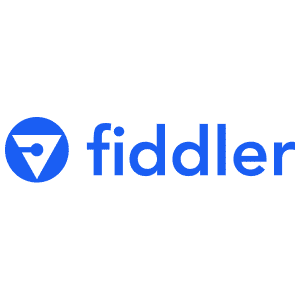Fiddler is a powerful and versatile tool in the realm of proxy servers and proxy management software. It has gained widespread recognition and acclaim for its robust capabilities in capturing, inspecting, and manipulating web traffic. In this article, we will delve into the intricacies of Fiddler, exploring what it is, how it works, and why it is crucial to consider using a proxy server in conjunction with Fiddler.
What is Fiddler Used for and How Does it Work?
Fiddler is primarily utilized as a web debugging proxy tool. It serves as an intermediary between your computer and the internet, allowing you to monitor and analyze HTTP/HTTPS traffic between your device and web servers. This is achieved by intercepting and capturing the requests and responses exchanged during online interactions.
Key functionalities of Fiddler include:
-
Traffic Inspection: Fiddler provides an intuitive interface for inspecting HTTP requests and responses in real-time. It offers comprehensive details about headers, content, and timings, making it an invaluable resource for developers and testers.
-
Traffic Manipulation: Users can modify HTTP traffic on the fly. This capability is instrumental in debugging and testing web applications by altering requests and responses to simulate various scenarios.
-
Performance Testing: Fiddler facilitates performance testing by measuring load times, latency, and other critical metrics. This aids in optimizing web applications for a seamless user experience.
-
Security Analysis: Security professionals often employ Fiddler to detect vulnerabilities in web applications. It helps identify potential security risks by examining traffic patterns and content.
Why Do You Need a Proxy for Fiddler?
While Fiddler itself is an exceptional tool, its functionality can be further enhanced by incorporating a proxy server. Here’s why:
-
Enhanced Anonymity: When you route Fiddler’s traffic through a proxy server, you add an additional layer of anonymity. This can be crucial when working with sensitive data or conducting competitive research.
-
Geolocation Testing: Proxies enable you to simulate different geographical locations, allowing you to assess how your web application behaves in diverse regions.
-
Load Testing: Proxies are instrumental in load testing scenarios. They distribute traffic across multiple IP addresses, preventing IP bans and ensuring accurate load testing results.
Advantages of Using a Proxy with Fiddler.
Utilizing a proxy server alongside Fiddler offers several advantages, including:
-
Security: Proxies act as a buffer between your network and the internet, enhancing security by concealing your IP address and location.
-
Scalability: Proxies enable the efficient scaling of web scraping, data extraction, and other data-intensive tasks.
-
Unblocking Restrictions: Proxies can bypass geo-restrictions and internet censorship, giving you access to content and resources otherwise unavailable in your region.
-
Traffic Management: Proxies allow for better control over traffic distribution, ensuring optimal performance during testing and data retrieval.
What are the Сons of Using Free Proxies for Fiddler?
While free proxies may seem appealing, they come with significant drawbacks, including:
| Cons of Free Proxies for Fiddler |
|---|
| Unreliability: Free proxies often suffer from downtime and slow speeds. |
| Security Risks: They may expose you to security risks, including data breaches. |
| Limited Features: Free proxies typically lack advanced features and customization options. |
| IP Blocks: Many websites blacklist common free proxy IP addresses, limiting their usability. |
What Are the Best Proxies for Fiddler?
Choosing the right proxy for Fiddler is crucial. Consider premium proxy services like OneProxy, which offer dedicated IP addresses, high-speed connections, and enhanced security features. These proxies are tailored for reliability and performance, making them ideal for seamless integration with Fiddler.
How to Configure a Proxy Server for Fiddler?
Configuring a proxy server for Fiddler is a straightforward process:
- Launch Fiddler and navigate to the “Tools” menu.
- Select “Options” and go to the “Gateway” tab.
- Enter the proxy server details provided by your proxy service provider, including the IP address and port number.
- Click “OK” to save the settings.
With these steps, Fiddler will route its traffic through the configured proxy server, allowing you to harness its full potential while enjoying the benefits of a reliable proxy service.
In conclusion, Fiddler is an indispensable tool for web debugging and analysis, and when combined with a high-quality proxy server like OneProxy, it becomes an even more formidable asset. By understanding the advantages and considerations of using proxies with Fiddler, you can optimize your web development, testing, and data retrieval processes.













